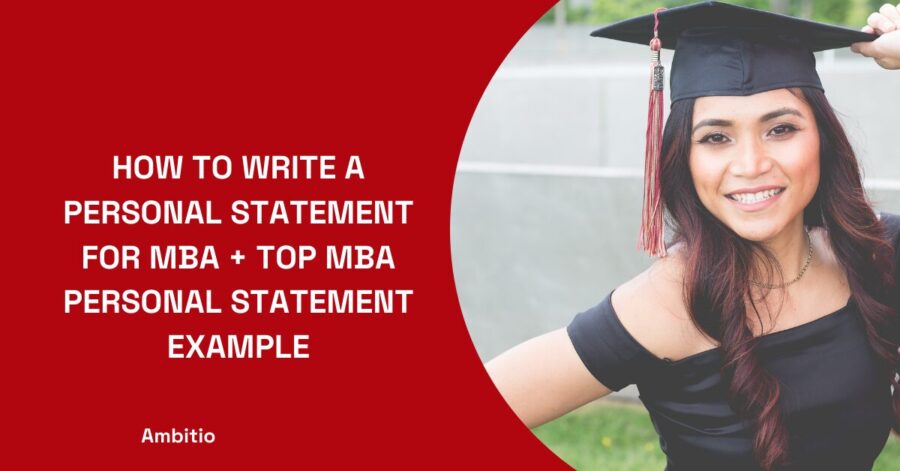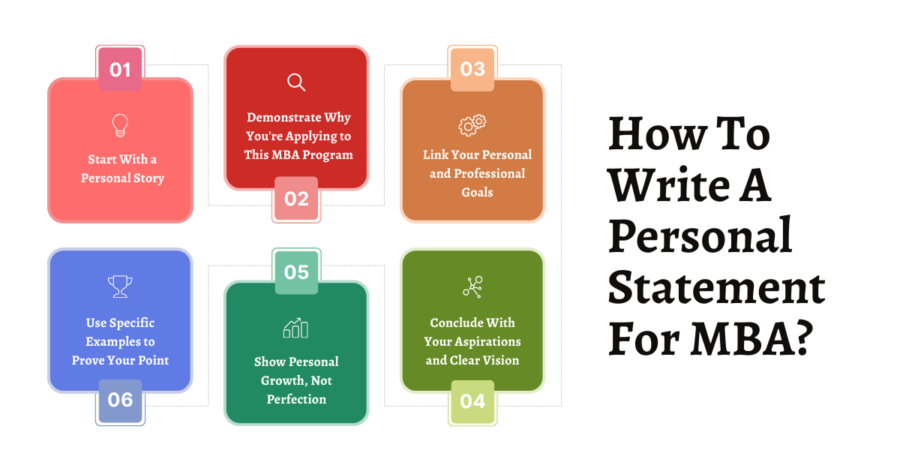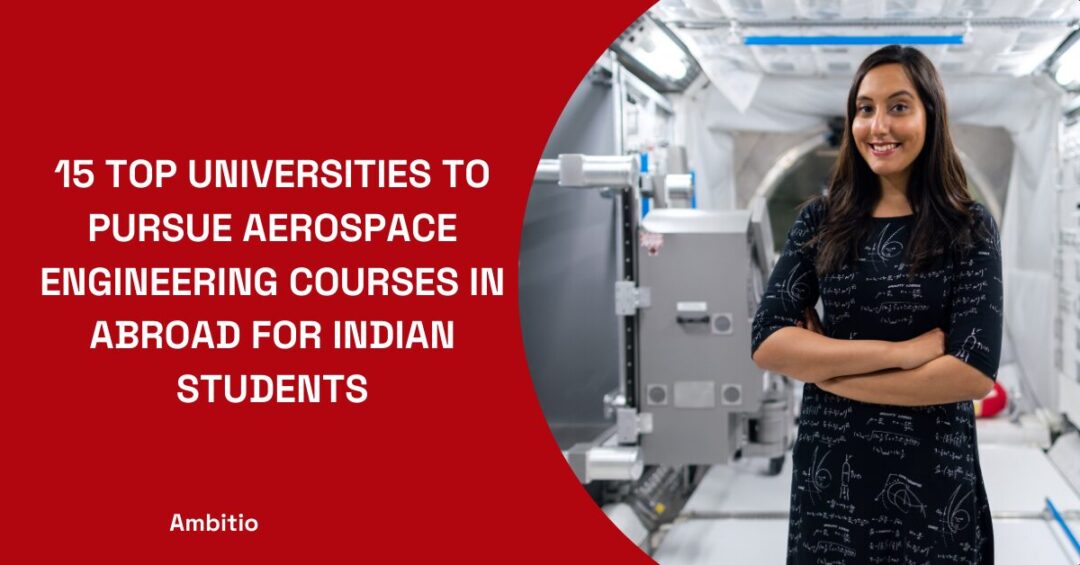9 May 2025
8 minutes read
How To Write A Personal Statement For MBA + Top MBA Personal Statement Example

Key Takeaways
- Learn how to write a personal statement for MBA by focusing on authenticity and concrete examples that align with your goals.
- Your personal statement is your opportunity to stand out and show the admissions committee who you are beyond your resume.
- Tailor each personal statement to the specific MBA program you’re applying to, highlighting how their unique offerings match your career aspirations.
You’ve nailed the GMAT and researched your dream schools, but here’s the kicker: the MBA personal statement is what can make or break your application. It’s not just about passion; it’s about showing the admissions committee why you belong in their program.
The problem? Most applicants rely on generic buzzwords like “leadership” and “drive” without backing them up with real stories.
The solution? Be authentic. Share specific examples that link your past to your career goals. Make it clear why this MBA program—whether it’s Harvard Business School or another top school—will help you achieve your aspirations.
Why Personal Statements Are Essential for MBA Program Application?
If you think your GMAT score or your resume is the golden ticket to getting into a top MBA program, think again. Sure, those things are important, but guess what? They’re not what the admissions committee is really looking at. They’ve read hundreds, if not thousands, of applications that look the same on paper. The real game-changer is the MBA essay, your chance to stand out, be memorable, and show why you’re not just another applicant.

Here’s why your personal statement isn’t just a nice-to-have—it’s essential to the MBA application process:
1. It Humanizes You Beyond Your Numbers
Your GMAT score, resume, and academic record all play a role, but the personal statement is the only place where you get to tell your story. Admissions committees see hundreds of similar scores, but what they really want to know is what drives you, what challenges you’ve faced, and what you bring to the table. It’s your moment to showcase who you are, beyond the typical MBA applicant.
2. It Shows You Understand the MBA Program’s Value
The personal statement gives you a chance to show that you’ve done your homework. Instead of just saying you want to “pursue an MBA” because it’s a natural career step, explain why you’ve chosen a particular school of business. Mention specific aspects of the program that align with your career goals. Top MBA programs like Harvard Business School want applicants who not only understand the value of their program but who also know how it fits into their long-term vision.
3. It’s Your Secret Weapon in a Competitive Field
MBA admissions are brutally competitive, especially at top schools. Your application is likely one of hundreds vying for a coveted spot in the next class. A standout personal statement can push your MBA application from “meh” to “must-have.” If you can highlight your uniqueness, show what makes you different, and explain how you’ll contribute to the school’s community, you’ve just set yourself apart.
4. It Reflects Your Writing and Communication Skills
The MBA essay is also a test of your writing skills. Graduate school, especially in a top MBA program, demands the ability to communicate complex ideas clearly and concisely. The admissions committee uses the personal statement to gauge your writing and analytical skills. If you can tell a compelling, structured story within a limited word count, they’ll take note.
5. It’s Your Chance to Direct the Narrative
You have the power to control the story you’re telling. The MBA admissions team doesn’t know everything about you—until you show them. You can address any weaknesses in your application, whether it’s a low GPA or a gap in your work experience. The personal statement is your chance to explain these things in context and turn them into strengths, showing how you’ve grown and what you’ve learned along the way.
How To Write A Personal Statement For MBA?
It’s a chance to showcase who you are, how you think, and why this MBA program will help you become the successful leader you’re aiming to be. Most applicants treat it like a “filler” essay to check off in the MBA application process, but let’s be real—it’s the moment to sell your story. So, no pressure, right?

Here’s how to write an MBA personal statement that’ll not only stand out but leave a lasting impression.
1. Start With a Personal Story
Your personal statement isn’t a resume regurgitation. Think about your personal journey—why you’re pursuing an MBA, the challenges you’ve faced, and how those experiences have shaped your goals. An MBA personal statement example that starts with a meaningful turning point or a failure that led to personal growth will make your statement stand out.
2. Demonstrate Why You’re Applying to This MBA Program
Tailor your statement to the specific MBA program you’re applying to. Show the admissions committee why their program is the right fit for you and vice versa. Whether it’s the culture, resources, or curriculum, you need to explain how this program will help you achieve your goals. Be specific—use examples like how the Wharton MBA program aligns with your leadership aspirations, or why Harvard’s network will help accelerate your career.
3. Link Your Personal and Professional Goals
A great MBA personal statement connects your personal experiences with your professional aspirations. Discuss how the MBA program will help you bridge the gap between where you are now and where you want to be in your career. Be concrete—what industry or role do you want to impact, and how will this MBA program help you develop the specific skills needed?
4. Use Specific Examples to Prove Your Point
Vague claims like “I am a leader” or “I want to make a difference” don’t cut it in a successful MBA personal statement. Use concrete examples to back up your story. Whether it’s a specific project you led, a team you managed, or a challenging situation you overcame, demonstrate how these experiences have prepared you for the MBA program. They prove you’re not just another MBA applicant.
5. Show Personal Growth, Not Perfection
The best MBA personal statement examples aren’t about perfection—they’re about showing growth. Admissions committees understand you’re not a finished product, and they want to see how you’ve learned from your experiences. Don’t shy away from sharing a failure or challenge. Focus on how it shaped you and what you learned from it.
6. Conclude With Your Aspirations and Clear Vision
End your personal statement by bringing everything back to your long-term goals. What’s the bigger picture? Be specific about your career aspirations and how this MBA program will help you achieve them. By connecting your past, present, and future with a clear and compelling conclusion, you leave a lasting impact on the admissions committee.
10 Business Schools To Get Admission In For MBA
If you’re going to spend six figures and two years of your life earning an MBA, you better make damn sure it pays off. And here’s the deal: where you apply matters just as much as how you apply. A well-written personal statement can open doors, but only if it’s aimed at the right doors.
Below are 10 top universities where submitting a standout MBA personal statement:
| University Name | Average Tuition Fees (2 years) | Average Post-MBA Salary |
|---|---|---|
| Harvard University (Harvard MBA) | $150,000 | $160,000+ |
| Stanford University (Stanford Graduate School of Business) | $158,000 | $175,000+ |
| University of Pennsylvania (Wharton MBA Program) | $162,000 | $165,000+ |
| University of Chicago (Booth School of Business) | $154,000 | $160,000+ |
| Northwestern University (Kellogg School of Management) | $156,000 | $155,000+ |
| Columbia University (Columbia Business School) | $163,000 | $155,000+ |
| Massachusetts Institute of Technology (Sloan) | $160,000 | $155,000+ |
| University of California, Berkeley (Haas) | $150,000 | $150,000+ |
| Dartmouth College (Tuck) | $157,000 | $150,000+ |
| Yale University (Yale School of Management) | $154,000 | $145,000+ |
2 MBA Personal Statement Examples That Almost Always Work
A statement of purpose tells the school what you want to do. A personal statement shows who you are and why it matters. One is professional; the other is personal—and both are judged hard. That’s why reading an MBA personal statement example that actually worked is crucial. It teaches you how to stop writing like a robot and start writing something the admissions committee feels
So, that being said, here are 2 outstanding MBA personal statement examples that you should check out:
MBA Personal Statement Example for Career Switchers
If you’re jumping from one industry to another—say, tech to finance or military to consulting—this kind of personal statement works. It shows why you’re switching, what you’ve learned, and how the MBA will help you bridge the gap.
I never thought a battlefield would teach me business strategy. Yet, during my time in the military, leading a team through chaotic, high-pressure operations taught me more about leadership, risk, and decision-making than any classroom ever could. But as I transitioned into civilian life, I realized that while I had the instincts, I lacked the technical foundation to lead in the corporate world.
I’m applying to your MBA program because I need to turn real-world grit into structured knowledge. I want to understand financial modeling as well as I understand logistics planning. I want to combine my leadership experience with the analytical edge a top MBA provides. And I want to work alongside people who’ve failed, built, pivoted, and still kept going.
This isn’t just a career change—it’s a continuation of how I solve problems and grow. Your program will help me transform my leadership into impact, and that’s exactly what I’m here to do.
MBA Personal Statement Example for Early-Career Professionals
If you’re applying with just a few years of experience and wondering if that’s “enough,” this kind of application essay proves that clarity, intent, and direction matter more than job titles.
When I started my first job as a business analyst, I wasn’t chasing a corner office—I was just trying to make sense of Excel sheets that looked like they were built to confuse. But over time, I realized I loved solving messy problems, asking tough questions, and seeing strategy turn into results. Still, I hit a ceiling I couldn’t break with curiosity alone.
That’s why I’m writing an effective MBA personal statement today—not to list my accomplishments, but to show that I’m ready for more. I’ve outgrown the “analyst” label. I want to lead, innovate, and make smarter decisions at scale. This MBA will help me build the skills, network, and mindset I need to step up—and step forward.
I believe every strong application essay answers one thing clearly: how the MBA will help you achieve your vision. My answer? It’ll sharpen what I know, challenge what I don’t, and shape me into someone who doesn’t just solve problems—but leads teams that do. That’s how I’m answering your essay question, and that’s the version of me I’m ready to become.
Conclusion
Don’t waste time chasing the perfect sentence. Use specific examples, write what you think, and tailor your personal statement to the particular MBA program you’re applying to. Whether it’s the Harvard MBA, Wharton MBA program, or any specific MBA track, the goal is simple: make your statement feel like no one else could’ve written it but you.
In the end, a well-written personal statement doesn’t try to impress—it connects. It tells a compelling personal story, offers concrete examples of personal growth, and shows the admissions team exactly how their MBA program will help you move forward. That’s how you craft a personal statement that actually works.
Most applicants struggle to write a perfect personal statement but end up sounding arrogant — but you won’t. At Ambitio, our AI-powered study abroad experts help you craft a powerful, standout personal statement that gets noticed. No fluff, no clichés—just a compelling story that proves you belong. Schedule a call with Ambitio’s experts.
FAQs
What is the purpose of an MBA personal statement?
The personal statement allows you to showcase your motivations, career goals, and why you’re a good fit for the MBA program, helping admissions committees understand your unique story and ambitions
What should I include in my MBA personal statement?
Include an engaging introduction, your unique background, clear career goals, reasons for choosing the specific MBA program, and a strong conclusion
How long should an MBA personal statement be?
Most MBA personal statements are between 400 and 1,000 words, typically one to two pages, unless the program specifies otherwise
How should I structure my personal statement?
Use an essay format with an introduction, 3–5 body paragraphs, and a conclusion. Each body paragraph should focus on a different aspect of your story or qualifications
What tone should I use in my MBA personal statement?
Adopt a professional yet authentic and personal tone. Be honest and reflective while maintaining clarity and confidence
Should I tailor my statement to each school?
Yes, personalize each statement to highlight why you’re interested in that specific program and how it aligns with your goals

You can study at top universities worldwide!
Get expert tips and tricks to get into top universities with a free expert session.
Book Your Free 30-Minute Session Now! Book a call now




























